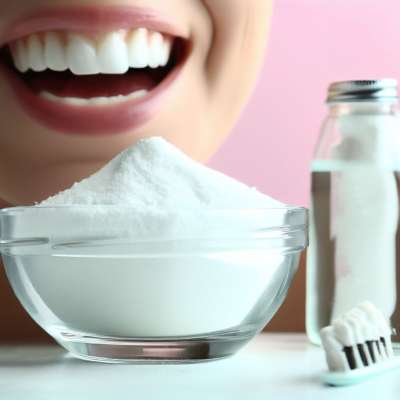From Apples to Papayas: Discovering Which Fruit Is Good for Teeth and Gums

Many are familiar with the health benefits of fruit, but have you ever wondered which fruit is good for teeth and gums? Fruits, packed with essential nutrients, can tantalize our taste buds and play a significant role in oral health. From preventing cavities to strengthening gums, certain fruits stand out as dental champions. Dive into the richness of nature’s offerings and discover the best fruits to maintain a radiant smile. Indeed, understanding which fruit supports oral wellness can be a game-changer for dental health.
I. Introduction
A. The vital role of fruits in overall health
Fruits have long been celebrated for their health benefits, from their vitamin richness to their capacity to boost the immune system. Whether enjoying a crisp apple or savoring a juicy mango, each bite is a step towards better health. They are powerhouses of antioxidants, fiber, and essential nutrients that contribute significantly to maintaining and enhancing bodily functions.
B. Fruits and oral health: An overlooked connection
While most discussions around fruits focus on their ability to enhance skin health, improve digestion, or reduce the risk of chronic diseases, their impact on oral health must be emphasized. Teeth and gums, essential components of our digestive system, also reap the rewards of a fruit-rich diet. Certain fruits can naturally clean teeth, refresh breath, and even provide the minerals needed to reinforce tooth enamel.
C. Importance of choosing the right fruits for dental benefits
However, not all fruits are created equal, especially regarding dental health. Knowing which ones offer the best benefits for our teeth and gums is crucial. While some fruits can be a boon, others might pose challenges when consumed in excess due to their sugar content or acidic nature. Hence, selecting the right fruits is decisive in harnessing their potential benefits for oral health.
II. Understanding the Basics of Dental Health
A. Role of vitamins and minerals in tooth and gum health
Our teeth and gums require specific vitamins and minerals to maintain optimum condition. For instance, calcium, commonly found in dairy products, is also present in some fruits and is vital for strong teeth. Fluoride, though more associated with toothpaste, is a mineral that helps combat tooth decay. Phosphorus, which works in tandem with calcium, is crucial for tooth durability. Fruits rich in Vitamin C, like oranges and strawberries, play a pivotal role in gum health by strengthening the soft tissue and combating gum bleeding.
B. Common dental issues and their causes
To appreciate the role of nutrition in oral care, one must first understand common dental problems. Cavities, gum diseases, tooth sensitivity, and enamel erosion are among the frequent issues many face. Poor oral hygiene, frequent snacking on sugary foods, acid reflux, or even genetic predisposition can lead to these problems.
C. How nutrition plays a pivotal role in oral care
Food and drink directly contact our teeth and gums, making their role in oral health profound. While sugary and acidic foods damage teeth by promoting bacterial growth and causing enamel erosion, a balanced diet rich in fruits, vegetables, and other essential nutrients can support oral health. Fruits, in particular, offer a combination of fiber, vitamins, and enzymes that cleanse the teeth and promote a healthier oral environment.
III. Fruits That Champion Dental Health
A. Apples: Nature’s toothbrush
Often termed “nature’s toothbrush,” apples have a unique texture that can help cleanse and brighten teeth. When you bite a crisp apple, chewing increases saliva production in your mouth, which neutralizes the bacteria that lead to bad breath. The fibrous texture of apples stimulates gums, acting as a gentle massager and promoting better gum health.
B. Berries: Packed with antioxidants and vitamin C
Berries, including strawberries, blueberries, and raspberries, are not only delicious but are also dental health superstars. Rich in antioxidants, they help combat harmful bacteria in the mouth. Strawberries, in particular, contain malic acid, which acts as a natural tooth whitener. However, their natural sugars make it essential to rinse your mouth or brush your teeth after indulging.
C. Citrus fruits: A double-edged sword
Citrus fruits, like oranges, lemons, and grapefruits, are loaded with vitamin C, which is vital for healthy gums. While they can strengthen blood vessels and reduce inflammation, the acidic nature of citrus can erode tooth enamel if consumed excessively. Consuming them in moderation is crucial, and rinse the mouth with water to neutralize the acidity.
D. Kiwi and papaya: Enzymatic powerhouses
Both kiwi and papaya are fruits that boast a plethora of essential enzymes. Kiwis have an unusually high concentration of vitamin C, even more than oranges, making them great for gums. Papayas contain an enzyme called papain, known for breaking down tough protein chains and aiding in natural teeth whitening. Including these fruits in your diet can bring about a noticeable improvement in oral health.
E. The cautionary tale of dried fruits
Dried fruits like raisins, apricots, and figs are often healthy snacks. However, when it comes to dental health, they can be a concern. Their sticky texture can cling to teeth and get trapped between them, leading to a higher risk of cavities due to prolonged sugar exposure. If consumed, it’s advisable to brush or floss soon after.
VI. Practical Tips for Incorporating Fruits in Your Dental Routine
A. Best time to consume fruits for oral benefits
Morning is often considered the ideal time to eat fruits as the body’s metabolism is most active. For dental health, consuming fruits during or after meals can help neutralize the acids produced by other foods. Also, it’s wise to avoid fruits right before bedtime unless you brush immediately after to prevent sugar from resting on your teeth overnight.
B. Pairing fruits with other foods to maximize benefits
Combining fruits with other foods can minimize their potential negative impacts. For example, pairing cheese with apples or berries can help counteract the fruit’s acidity, as cheese promotes saliva production, which neutralizes acids. Similarly, nuts with dried fruits can reduce the stickiness and likelihood of particles getting trapped between teeth.
C. Washing and cleaning fruits: Best practices
Washing fruits thoroughly is imperative to remove any pesticides, contaminants, or residues. A mixture of baking soda and water can be an effective way to cleanse them. Scrubbing fruits with edible skins, like apples and berries, under running water using a soft brush can also help ensure they’re clean and safe for consumption.
V. Supplements for Strengthening Teeth and Gums
A. Why consider supplements in dental care
Even with a balanced diet, we might miss essential nutrients or need to consume in sufficient quantities. Supplements come in handy to fill these nutritional gaps, ensuring our teeth and gums get all they need to remain strong and healthy. Supplements can benefit those with dietary restrictions or certain health conditions.
B. Calcium and Vitamin D: Building blocks of strong teeth
Calcium is the primary component of our teeth and bones, making its consistent intake crucial for dental health. Vitamin D, often known as the sunshine vitamin, assists in the body’s absorption of calcium. Together, they ensure the teeth remain strong, reducing the risk of cavities and tooth decay. While dairy products are rich in calcium, those who are lactose intolerant or vegan can benefit significantly from calcium and vitamin D supplements.
C. Vitamin C: The gum strengthener
A deficiency in vitamin C can lead to gum inflammation and bleeding, known as scurvy. Vitamin C plays a pivotal role in synthesizing collagen, a protein that helps maintain the structural integrity of gums. While many fruits provide vitamin C, those who don’t consume enough of these fruits might consider vitamin C supplements to ensure gum health.
D. Herbal supplements and their contributions
Certain herbs, like neem and clove, have been traditionally used in dental care for their antimicrobial properties. Herbal supplements containing these and other herbs can be beneficial in maintaining oral hygiene, combating bad breath, and reducing the risk of gum diseases.
E. Tips for choosing the right supplement
- Research: Before choosing any supplement, it’s crucial to research its ingredients, benefits, and potential side effects.
- Consultation: Always consult with a dentist or healthcare professional before introducing any supplements to your regimen.
- Certifications: Opt for supplements certified by recognized bodies to ensure their quality and purity.
- Dosage: Stick to the recommended dosage and avoid excessive consumption.
VI. FAQs
Q: Which fruits are known to naturally clean teeth?
A: Apples, often termed “nature’s toothbrush,” have a unique texture that helps cleanse and brighten teeth.
Q: Can berries stain my teeth?
A: While berries like blueberries and blackberries can temporarily stain teeth due to their deep color, their dental benefits outweigh this minor concern. Regular brushing can help prevent lasting stains.
Q: Are citrus fruits harmful to my teeth due to their acidic nature?
A: Citrus fruits are acidic, and excessive consumption can erode tooth enamel. However, in moderation and with proper oral hygiene, they offer numerous benefits, including gum health, due to their high vitamin C content.
Q: Is the sugar content in fruits harmful to teeth?
A: While fruits contain natural sugars, they also have fiber, vitamins, and water that benefit dental health. Consuming them whole and maintaining good oral hygiene can mitigate potential risks.
Q: Do dried fruits pose a risk to dental health?
A: Dried fruits are sticky and can cling to teeth, increasing the risk of cavities. It’s essential to brush or floss after consuming them.
Q: How do kiwi and papaya benefit oral health?
A: Kiwis are rich in vitamin C, promoting gum health, while papayas contain the enzyme papain, which is known for natural teeth whitening and breaking down tough protein chains.
Q: Are there any supplements that can support dental health?
A: Yes, supplements containing calcium, vitamin D, vitamin C, and certain herbal extracts can significantly support teeth and gum health. However, consulting with a healthcare professional before starting any supplement is essential.
VII. Conclusion
A. The holistic approach to dental care
Dental health is not just about brushing, flossing, and regular visits to the dentist. It encompasses a broader holistic approach considering our dietary habits, lifestyle choices, and overall well-being. Just as our oral health can indicate systemic issues, our consumption can directly impact our teeth and gums. Thus, a comprehensive perspective on dental care, combining good oral hygiene with a balanced diet, paves the way for a healthier mouth and body.
B. Emphasizing the significance of nutrition in oral health
Nutrition plays an undeniably pivotal role in maintaining the health of our teeth and gums. A diet rich in essential vitamins, minerals, and antioxidants, predominantly from fruits, can provide the building blocks for stronger teeth and resilient gums. It’s a testament that our plate’s contents can be as influential as our toothbrush in determining our oral health.
C. The takeaway on which fruit is good for teeth and gums
In summary, fruits like apples, berries, kiwis, and papayas are stellar for dental health, offering a myriad of benefits, from natural cleaning to providing essential nutrients. However, being mindful of some fruits’ sugar content and acidity is crucial. Integrating these fruits into our daily diet, combined with a consistent oral care routine and possibly the inclusion of beneficial supplements, can lead to a brighter smile and a healthier dental future. Remember, every bite counts, so make it fruitfully beneficial for your teeth and gums.
VIII. Suggested Readings
The connection between our diet, oral health, and overall wellbeing is intricate and profound. To further enhance your knowledge and understanding, we recommend diving into the following books that offer a blend of practical insights and scientific research:
- Cure Gum Disease Naturally: Heal Gingivitis and Periodontal Disease with Whole Foods by Ramiel Nagel: Nagel presents a transformative approach, highlighting the power of whole foods in combating gum diseases. His research and findings underscore the potency of natural remedies in dental health.
- The Tooth Book: A Guide to Healthy Teeth and Gums by Edward Miller: An essential guide for all ages, Miller takes readers through the basics of maintaining stellar dental health. This book blends engaging illustrations and expert advice, making oral care approachable and fun.
- Eat to Beat Gum Disease: A Comprehensive Guide to Nutrition and Periodontal Health by Thomas E. Levy: Levy intricately discusses the significant role of nutrition in preventing and treating gum diseases. A compelling read for those who believe in the power of diet for optimum oral health.
- The Natural Dentist’s Cavity-Free Approach to Oral Health by Weston A. Price: Delve into the world of holistic dental care with Price’s groundbreaking findings. Drawing upon traditional diets and practices, Price offers a unique perspective on achieving cavity-free oral health.
- The Mouth-Body Connection: How Your Oral Health Can Impact Your Overall Wellbeing by Mark Burhenne: Burhenne brilliantly connects oral health and systemic health, emphasizing the undeniable interplay between the mouth and the body. His insights will make readers rethink their approach to dental care and its broader implications.
These reads promise to enrich your understanding, empowering you with the knowledge to make informed choices about your dental health and its role in overall vitality.






